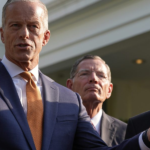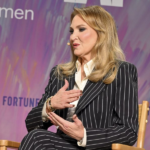“The state seeks to erect barriers to speech that cannot withstand the rigorous scrutiny that the Constitution requires,” Totenberg wrote, finding the law restricts the rights of minors, chills the right to anonymous speech online and restricts the ability of people to receive speech from social media platforms.
Georgia will appeal, a spokesperson for Attorney General Chris Carr said Thursday.
“We will continue to defend commonsense measures that empower parents and protect our children online,” spokesperson Kara Murray said in a statement.
Totenberg wrote that NetChoice’s members would be irreparably harmed by the law. She rejected arguments from the state that the group shouldn’t get temporary relief because it had delayed filing its lawsuit by a year and because the state would be required to give 90 days’ notice before enforcing the law.
“Free expression doesn’t end where government anxiety begins,” NetChoice Director of Litigation Chris Marchese said in a statement. “Parents— not politicians — should guide their children’s lives online and offline— and no one should have to hand over a government ID to speak in digital spaces.”
Georgia had argued the law was meant to protect children in a dangerous place, likening it to banning them from bars serving alcohol instead of restricting their speech.









